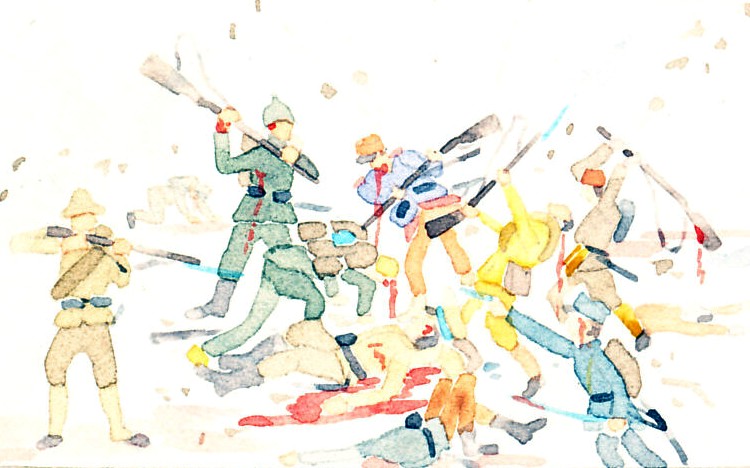An illustrated postcard of captured Russians, led by an officer, laying down their arms under the eyes of German lancers. A Russian victory, the Battle of Gumbinnen, fought on August 20, 1914, was the second encounter between the Russian invaders and the German defenders of East Prussia.

Die Gefangennahme von 8000 Russen bei Gumbinnen.
The Capture of 8,000 Russians in Gumbinnen.
Curt Schultz Steglitz
Reverse:
Message dated January 20, 1917 and postmarked the same day.
Karl Voegels, Berlin O. 27, Blumenstr. 75 (11)
Other views:
Larger, Back
